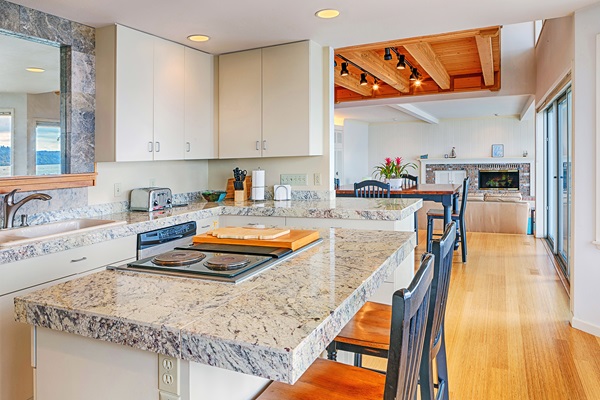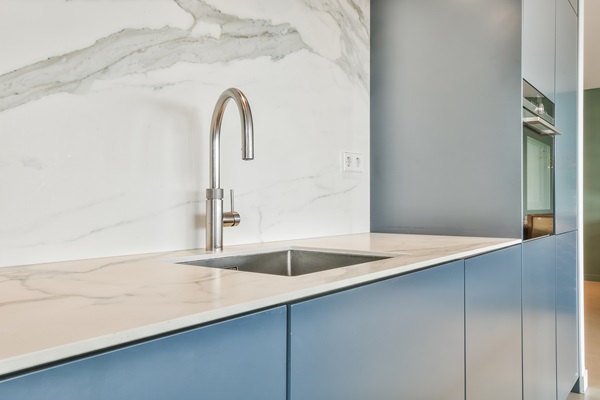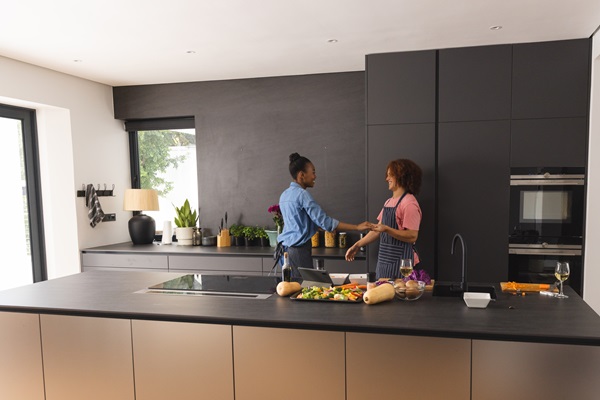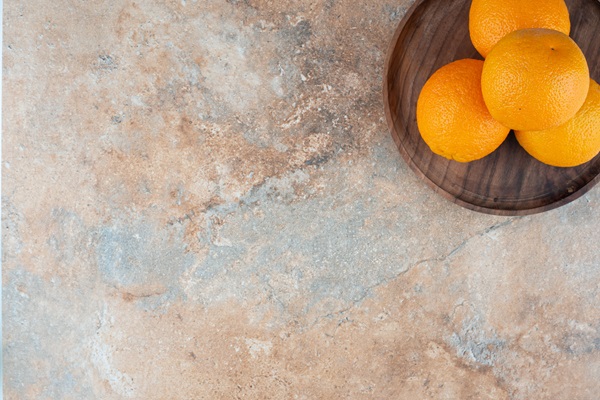The kitchen, often referred to as the heart of the home, has seen a resurgence in using natural stone for countertops. Esteemed for their durability and timeless beauty, natural stones such as granite, marble, and others offer unique characteristics that make each kitchen distinct. This article delves into natural stone countertops, exploring various types’ aesthetics, maintenance, and cost. It aims to guide homeowners through the myriad of choices available, ensuring that their selection not only enhances the beauty of their kitchen but also aligns with their lifestyle needs and budget.
Contents
Granite Countertops

Granite has long been a favorite for kitchen countertops owing to its robustness and array of colors and patterns. Each granite slab is unique, with intricate patterns ranging from subtle to bold, making it a versatile choice for various kitchen styles. Beyond its beauty, granite is renowned for its hardness and resistance to scratches and heat, making it an ideal working surface in a busy kitchen. However, it requires periodic sealing to prevent stains and maintain its pristine condition.
The cost of granite countertops can vary widely, influenced by factors like thickness, color, and the complexity of the installation. While it can be pricier, many homeowners find the investment worthwhile for its durability and the value it adds to the home. Professional installation is recommended for the best results, ensuring that these heavy and sometimes unwieldy slabs are handled correctly.
Marble Countertops

Marble, synonymous with luxury, brings an unrivaled classic beauty to kitchens with its unique veining and soft luster. Each marble countertop is a piece of art with unique patterns and hues. This natural stone is particularly loved for its bright, crisp feel, often used in high-end kitchen designs. Despite its beauty, marble is more porous and softer than granite, making it prone to scratches, stains, and etching.
Marble countertops require careful maintenance, including regular sealing and immediate cleaning of spills, especially acidic substances. Their cost is often higher than that of other natural stones, influenced by factors like origin, rarity, and thickness. However, marble’s luxurious appeal and timeless elegance make it a sought-after choice for those looking to make a statement in their kitchen design.
Quartzite Countertops

Quartzite offers a perfect blend of beauty and resilience, making it an increasingly popular choice for kitchen countertops. Not to be confused with engineered quartz, quartzite is a natural stone known for its hardness and durability, closely rivaling granite. It often features marble-like veining, providing the marble look with enhanced durability. This makes it a suitable option for those desiring the elegance of marble without its maintenance concerns.
Regarding care, quartzite is relatively low maintenance, requiring occasional sealing to protect its surface. It stands up well to heat and resists staining, making it a practical choice for busy kitchens. The quartzite cost is generally comparable to granite and marble, depending on the variety and availability. Its growing popularity is a testament to its blend of functionality and aesthetic appeal, making it an excellent choice for contemporary kitchen designs.
Soapstone Countertops

Soapstone is a unique natural stone that brings the kitchen a warm, inviting feel. Characterized by its soft, tactile texture and typically darker tones, soapstone offers a rich, rustic aesthetic. Unlike other natural stones, it has a non-porous surface, which doesn’t require sealing. This quality makes it highly resistant to stains, offering a low-maintenance solution for busy households.
While soapstone is softer than granite or quartzite, it can withstand heat, making it a practical choice for kitchens. Over time, it naturally darkens, enhancing its character and appeal. The cost of soapstone countertops can be comparable to other high-end materials, though their durability and distinctive look provide long-lasting value. Its ease of care and natural beauty make it a compelling choice for those seeking a countertop material with character and practicality.
Limestone Countertops

Limestone countertops bring a touch of the earth’s history into the kitchen, often featuring fossilized remnants and a natural, organic appeal. Their muted tones, ranging from creams to light browns, contribute to a soft, understated elegance in kitchen design. Limestone is typically smoother and less granular than granite, offering a different texture and feel. However, it is important to note that limestone is more porous and softer than other natural stones, making it susceptible to scratches and staining.
Maintaining limestone countertops involves regular sealing to protect against stains and damage. Due to its sensitivity to acidic substances, spills should be cleaned promptly to avoid etching. The cost of limestone countertops is often driven by the stone’s rarity and the installation’s complexity. Despite these considerations, limestone remains preferred for those seeking a warm, natural look with a sense of timelessness in their kitchen space.
Slate Countertops

Slate is a fine-grained natural stone that offers a unique aesthetic to kitchen countertops. Known for its subtle color variations and durability, slate presents a more uniform appearance than other natural stones. Its natural cleft surface provides a tactile experience, adding to its charm. One of the key advantages of slate is its non-porous nature, making it highly resistant to stains and easy to clean.
In addition to its practical benefits, slate is known for its affordability and suitability for DIY installations. It does not require sealing like many other natural stones, reducing its long-term maintenance needs. The cost of slate countertops can be more budget-friendly, making it an attractive option for homeowners seeking natural stone beauty without a high price tag. Its durability, ease of maintenance, and aesthetic versatility make it a solid choice for various kitchen styles.
Travertine Countertops

Travertine countertops offer a unique texture and pattern that adds elegance and warmth to any kitchen. Known for its distinctive pitted holes and troughs, travertine is a form of limestone used in building materials for centuries. Its color palette typically includes warm, earthy tones, providing a natural, inviting ambiance.
Like other natural stones, travertine requires some maintenance to preserve its beauty. Filling the natural holes and pits with grout or resin is recommended to create a smoother, more durable surface. Regular sealing is also necessary to protect against stains and etching, especially in a high-use area like the kitchen. Regarding cost, travertine is generally more affordable than some high-end stones like marble, making it a cost-effective option for those seeking natural stone countertops.
The Bottom Line
Selecting the right natural stone for kitchen countertops is a decision that blends aesthetic preferences with practical considerations. From the robust durability of granite and quartzite to the luxurious elegance of marble and onyx, each stone offers unique qualities and challenges. Maintenance, cost, and the stone’s natural characteristics should be carefully weighed against the homeowner’s lifestyle and kitchen usage. Ultimately, the choice of stone can dramatically influence the ambiance and functionality of the kitchen, making it a crucial aspect of any kitchen design or renovation project. By understanding the distinct attributes of each stone, homeowners can make an informed decision that enhances the beauty and value of their home.


